As a new day dawned on prohibition Britain, activists across the country prepared to join the Anyone’s Child campaign for their annual lobby of Parliament. This year’s lobby marked the conclusion of the 50-year anniversary of the Misuse of Drugs Act 1971 (MDA). What we’ve called the ‘50 years of failure’, the MDA has long fallen short of its promise of a drug-free society. Conversely, drug use, drug potency, drug related deaths, and crime have risen exponentially. As such, with moves towards legal regulation making waves across the world, the time was ripe for a change in UK drug policy. It was the 28th of June, 2022. It was a day of hope.
As Revd Jon Canessa said during his speech at college green, hope has two beautiful daughters; anger and courage – anger at the way things are and courage to see that they needn’t be this way. This dichotomy of hope was most poignantly evoked in the 4,517 forget-me-not flowers which laid on the ground at college green, one for each life lost to the drug war in 2020. On the coach from Bristol, I got the chance to meet several activists, many of whom have lost a loved one, a son, daughter, spouse, friend, colleague. Many wore t-shirts with labels such as “my son” or “my partner”. This is the purpose of the Anyone’s Child campaign – to present the human faces and lived experiences behind each statistic.
 As the day progressed family members gave heartfelt speeches, remembering their loved ones who died preventable deaths at the hands of failed drug policy. Two such testimonies particularly stood out to me. Anne-Marie Cockburn spoke of her daughter, Martha who died tragically from an MDMA overdose at the age of 15. While speaking of the harrowing phone call no parent ever wants to receive and the tragic events which followed, on the floor next to her were Martha’s shoes symbolising the loss of her only child, shoes which no one can fill. Despite MDMA being a relatively safe substance, Martha died from taking too much of a particularly pure batch. It was a lack of information and dosage advice which led to her overdose. Under legal regulation, drugs such as MDMA could be obtained in standardised doses with ingredients lists and purity information so that an informed decision can be made. Under regulations such as these, young people like Martha would be safeguarded.
As the day progressed family members gave heartfelt speeches, remembering their loved ones who died preventable deaths at the hands of failed drug policy. Two such testimonies particularly stood out to me. Anne-Marie Cockburn spoke of her daughter, Martha who died tragically from an MDMA overdose at the age of 15. While speaking of the harrowing phone call no parent ever wants to receive and the tragic events which followed, on the floor next to her were Martha’s shoes symbolising the loss of her only child, shoes which no one can fill. Despite MDMA being a relatively safe substance, Martha died from taking too much of a particularly pure batch. It was a lack of information and dosage advice which led to her overdose. Under legal regulation, drugs such as MDMA could be obtained in standardised doses with ingredients lists and purity information so that an informed decision can be made. Under regulations such as these, young people like Martha would be safeguarded.
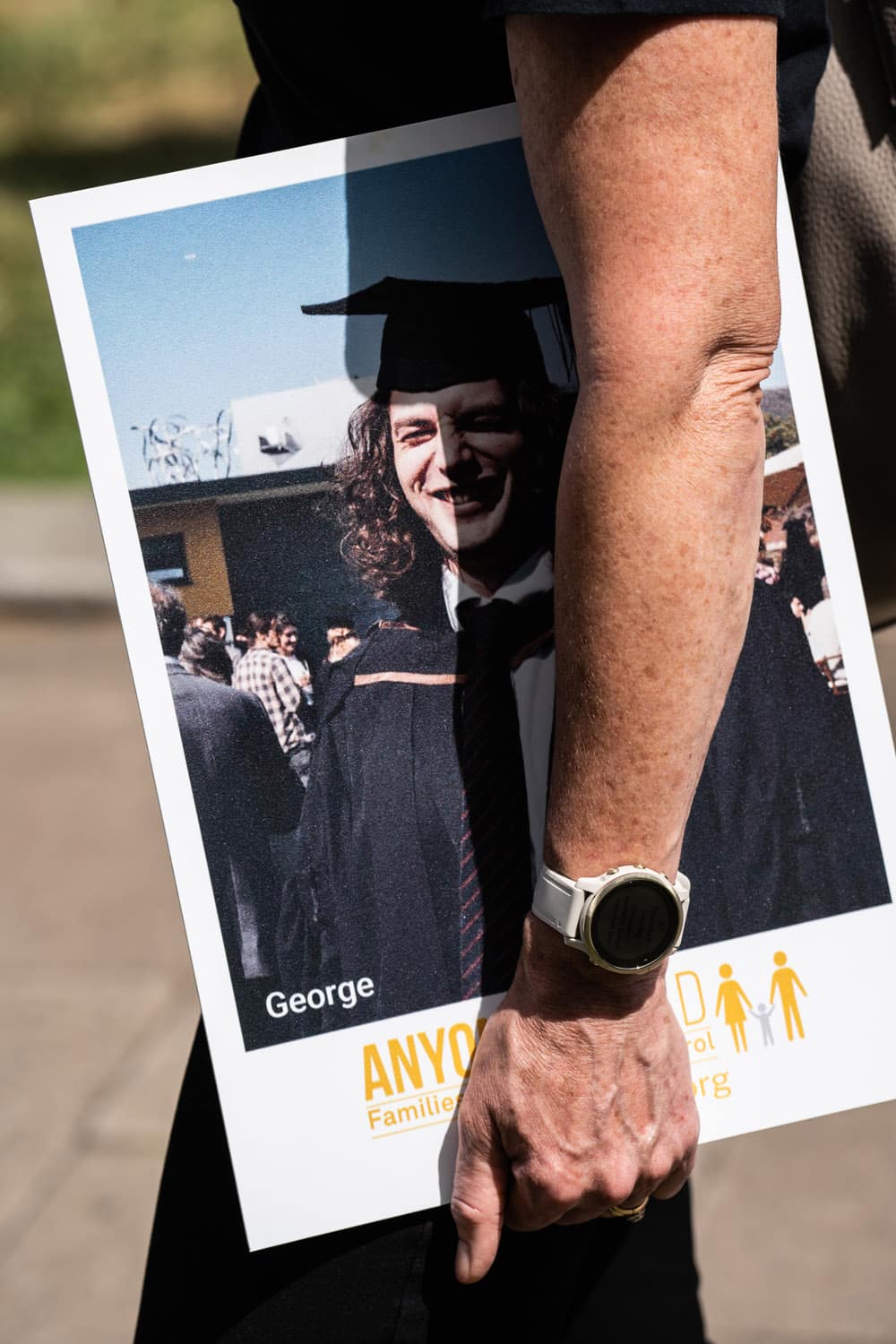 Another testimony which stood out to me was that of Alison and her son George, who died of a heroin overdose following years of untreated childhood depression. George was refused access to mental health intervention on the basis that he was relying on prescription opiates to manage his dependence. In an effort to access mental health services, George tapered off his prescription leaving him vulnerable to relapse. In 2016 he was found dead after relapsing onto street heroin. Allison argues that if heroin assisted treatment (HAT) was available to George, he would still be alive today. HAT provides dependent heroin users with safe access to clean heroin under medical supervision, often alongside access to wellbeing services.
Another testimony which stood out to me was that of Alison and her son George, who died of a heroin overdose following years of untreated childhood depression. George was refused access to mental health intervention on the basis that he was relying on prescription opiates to manage his dependence. In an effort to access mental health services, George tapered off his prescription leaving him vulnerable to relapse. In 2016 he was found dead after relapsing onto street heroin. Allison argues that if heroin assisted treatment (HAT) was available to George, he would still be alive today. HAT provides dependent heroin users with safe access to clean heroin under medical supervision, often alongside access to wellbeing services.
While both tragedies are different in nature both share the fate of being let down by a flawed system. Deaths of this kind are unnecessary, undeserved, and all too common. But beyond the expressions of pain and mourning, the message to MPs was clear – to save lives, improve health, and reduce crime, legal reform is paramount. Specifically, we need a systemic shift away from the punitive rationale of criminal justice, towards a public health approach. Moreover, to remain neutral or silent on this issue any longer is, by default, to support the unregulated market, the criminals who exploit it, and the deaths of thousands of victims as a result.
Alongside the friends and family of lost loved ones, the event was attended by a diverse range of advocates. Revd Jon Canessa joined the cause after performing too many funerals for victims of the drug war. Former undercover police officer, Neil Woods, joined after realising the pain his work was inflicting upon communities. Former police officer, Suzanne joined after suffering with alcoholism and drug abuse herself, realising the shame and guilt that drug policy engenders. Supportive MPs such as Ben Lake of Plaid Cymru, Jenny Jones of the Green Party, Jeff Smith of Labour, and Daisy Cooper of the Liberal Democrats also joined the cause after seeing the harm the drug war has inflicted on their constituents.
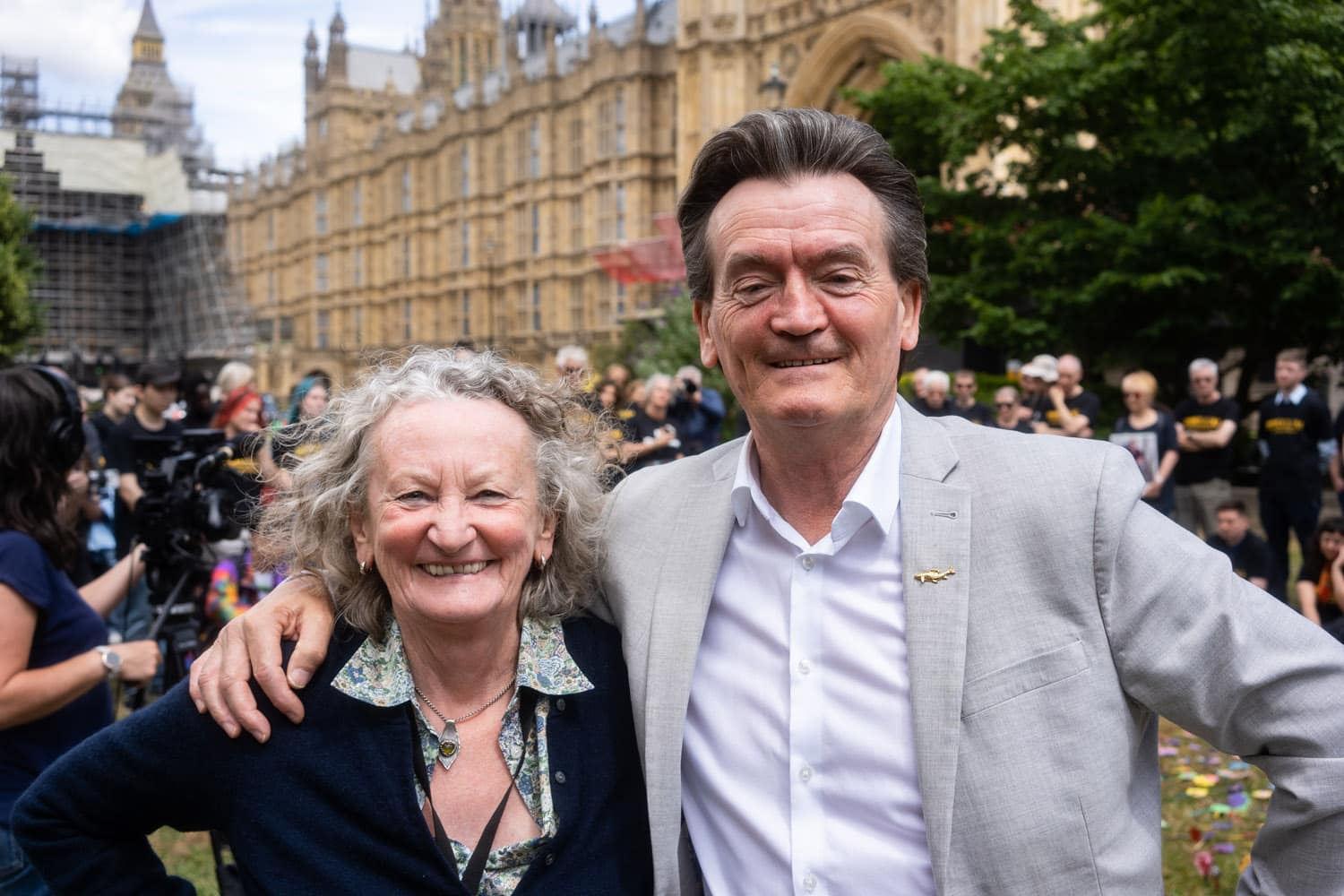
The Undertones frontman Feargal Sharkey (right) also joined Baroness Jenny Jones (Green Party) (left) at the lobby
Beyond drug-related deaths, anyone’s child can get caught by police, impacting their future, and falling victim to the revolving door of prison. Anyone’s child can fall into the hands of organised criminals who prey on young people and exploit them in county lines operations. As Neil Woods highlighted in his testimony at the lobby, the punitive approach is not merely futile, it “sharpens the sword of organised crime”.
Armed with the statistics and the stories, a key part of the day was to meet with MPs. I was lucky enough to join two meetings including Thangam Debbonaire (Labour) of Bristol West and Ben Lake (Plaid Cymru) of Ceredigion. We held important discussions around introducing vital harm reduction measures such as HAT, overdose prevention centres (OPCs), and drug safety testing – three vital harm reduction measures which could save lives and reduce crime. Alongside this we made the longer-term case for the legal control and regulation of the drug market.
Following the main events, I collected feedback from the activist attendees. I was delighted to hear that everyone was optimistic, moved and inspired. The most impactful moments of everyone’s day were the speeches, the planting of the flowers in remembrance, and the singing by the Rising Voices choir, Bristol Drugs Project’s recovery choir. It was disheartening to hear that a few people had been stonewalled by their MP, which, as I’ve mentioned, perpetuates the problem. These MPs know who they are, and they must do better. Most poignantly, when I asked one activist what could be improved for next time she simply replied, “less deaths”.
This was my first lobby of parliament, and it went excellently. Though, while it filled me with hope and inspiration, I fear it will not be the last.
*This blog post was written by George E. Smith.


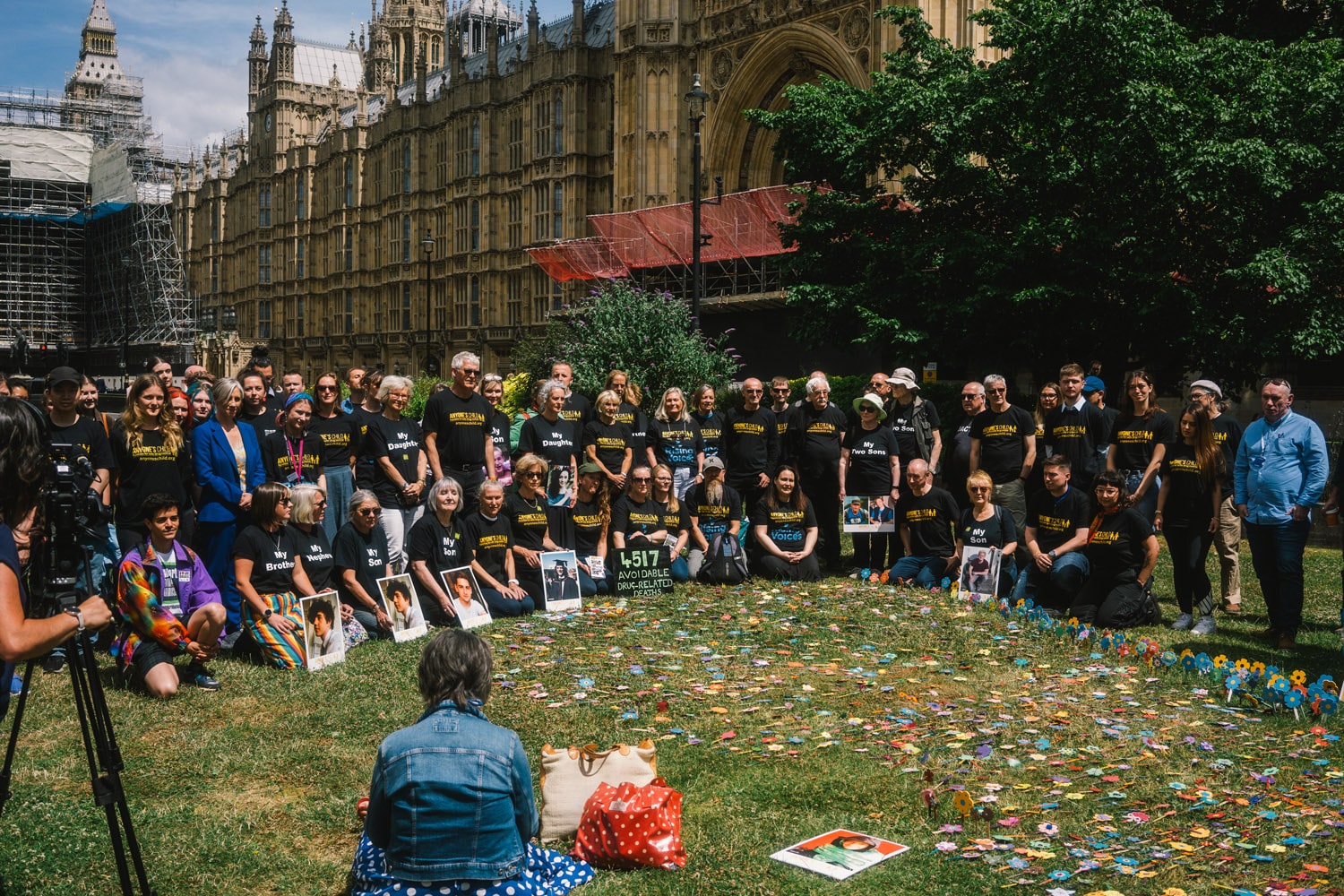

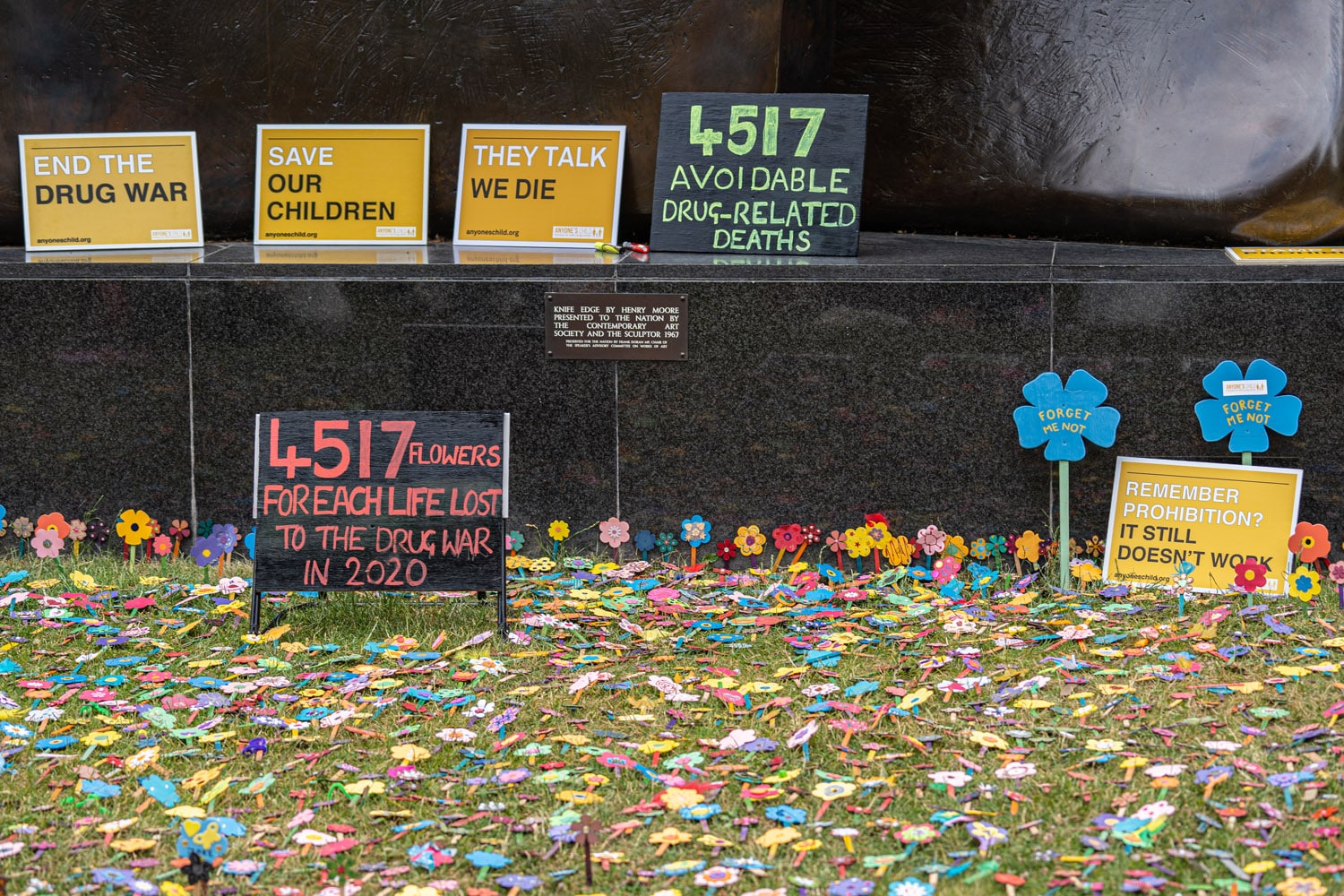



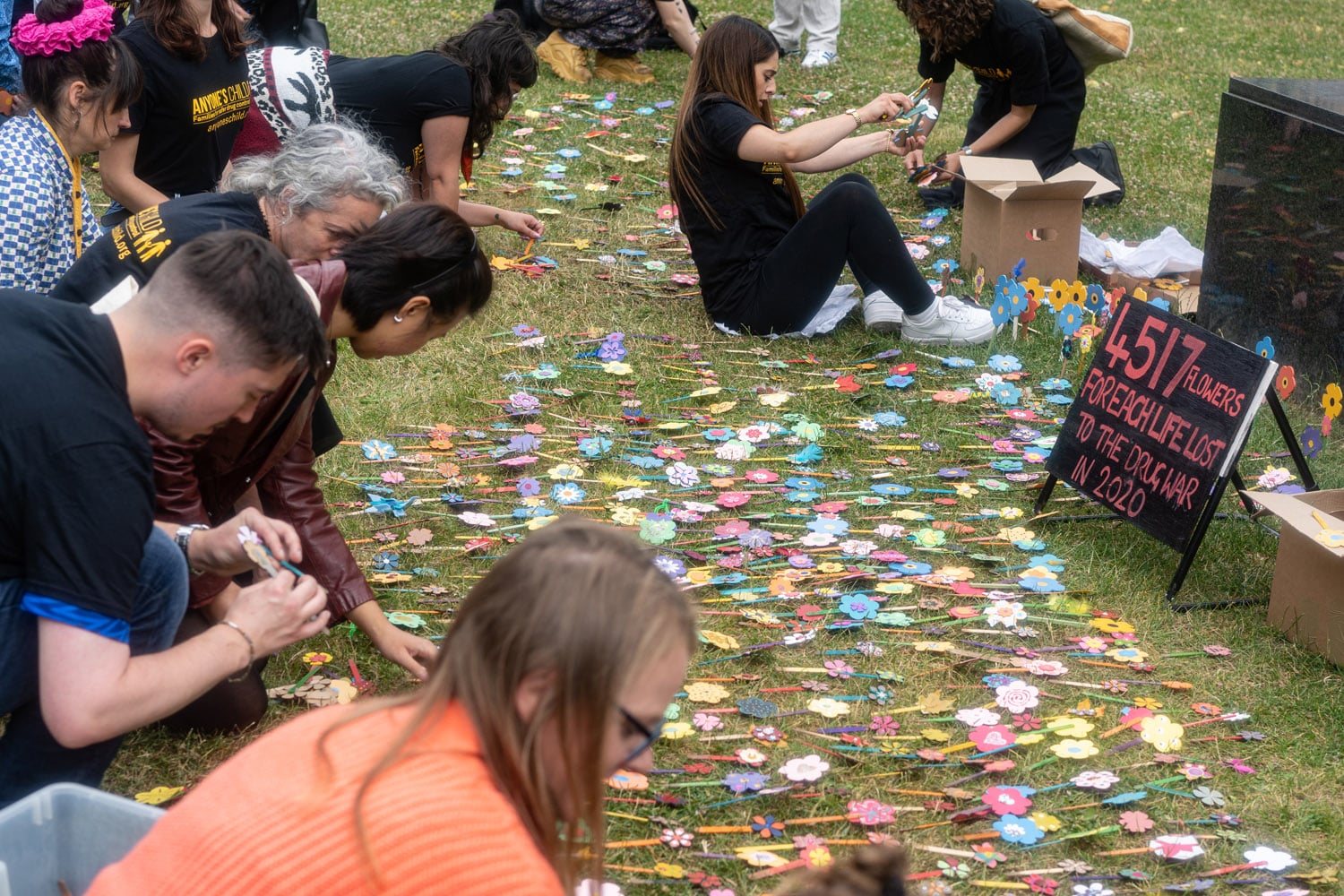
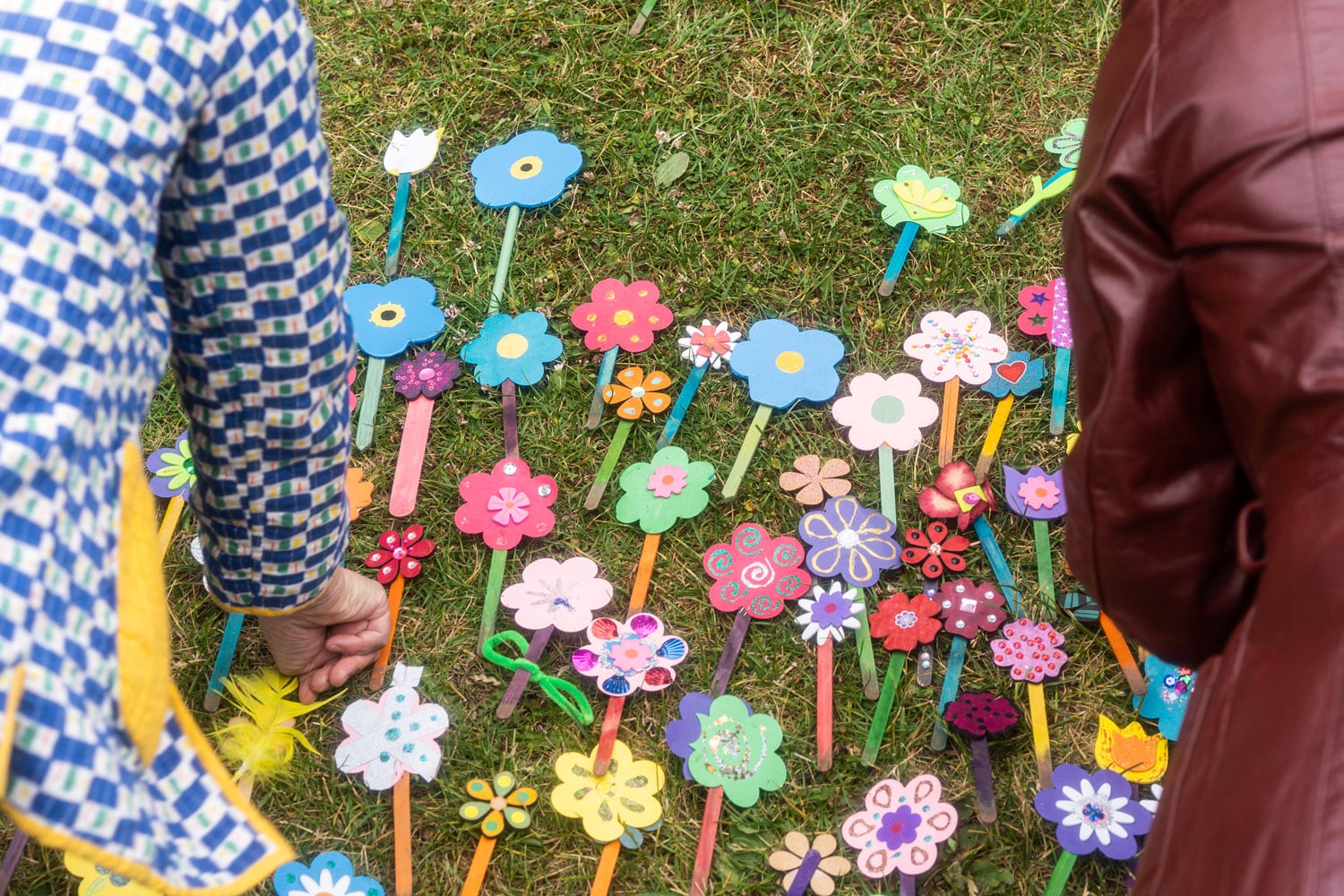
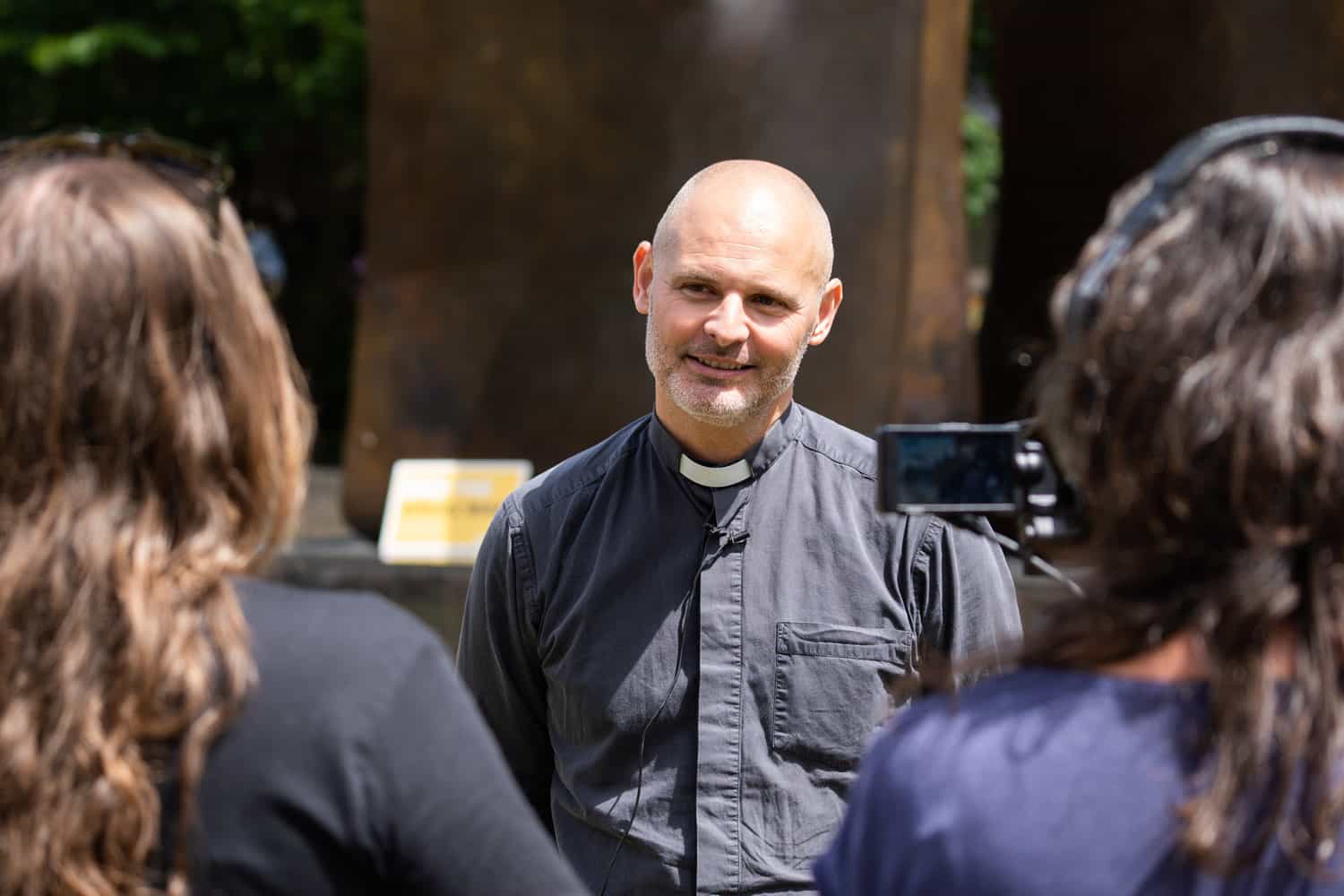

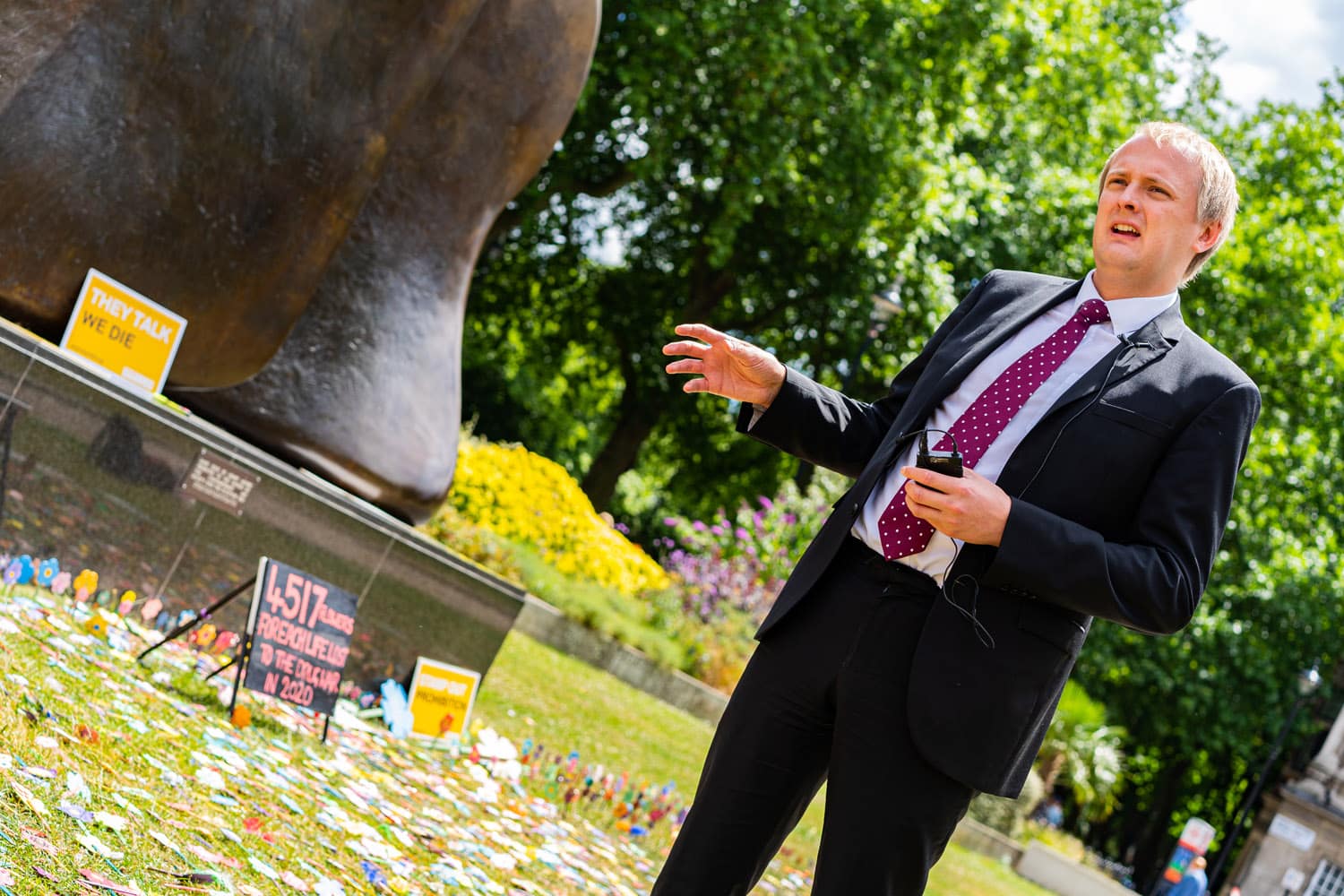
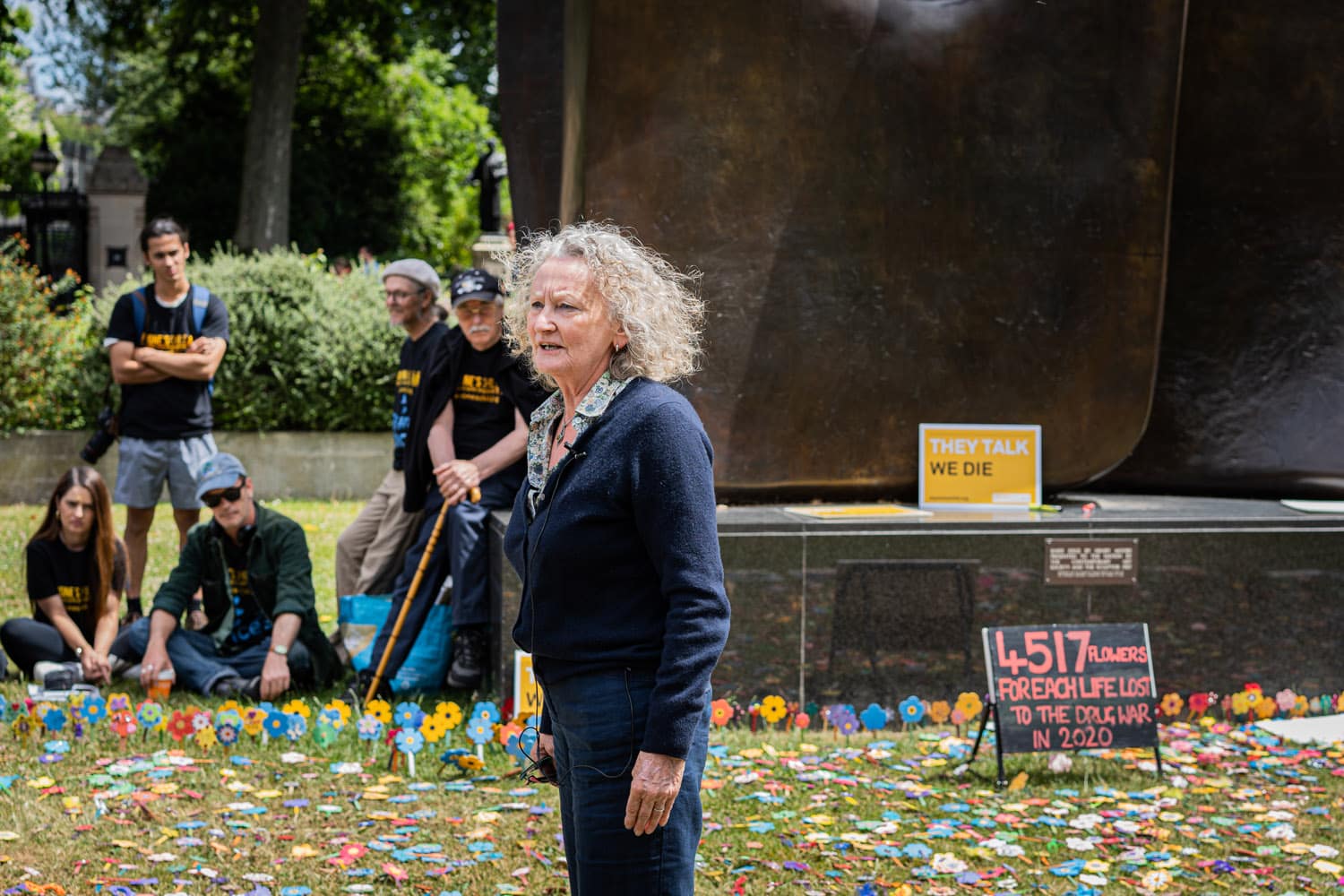
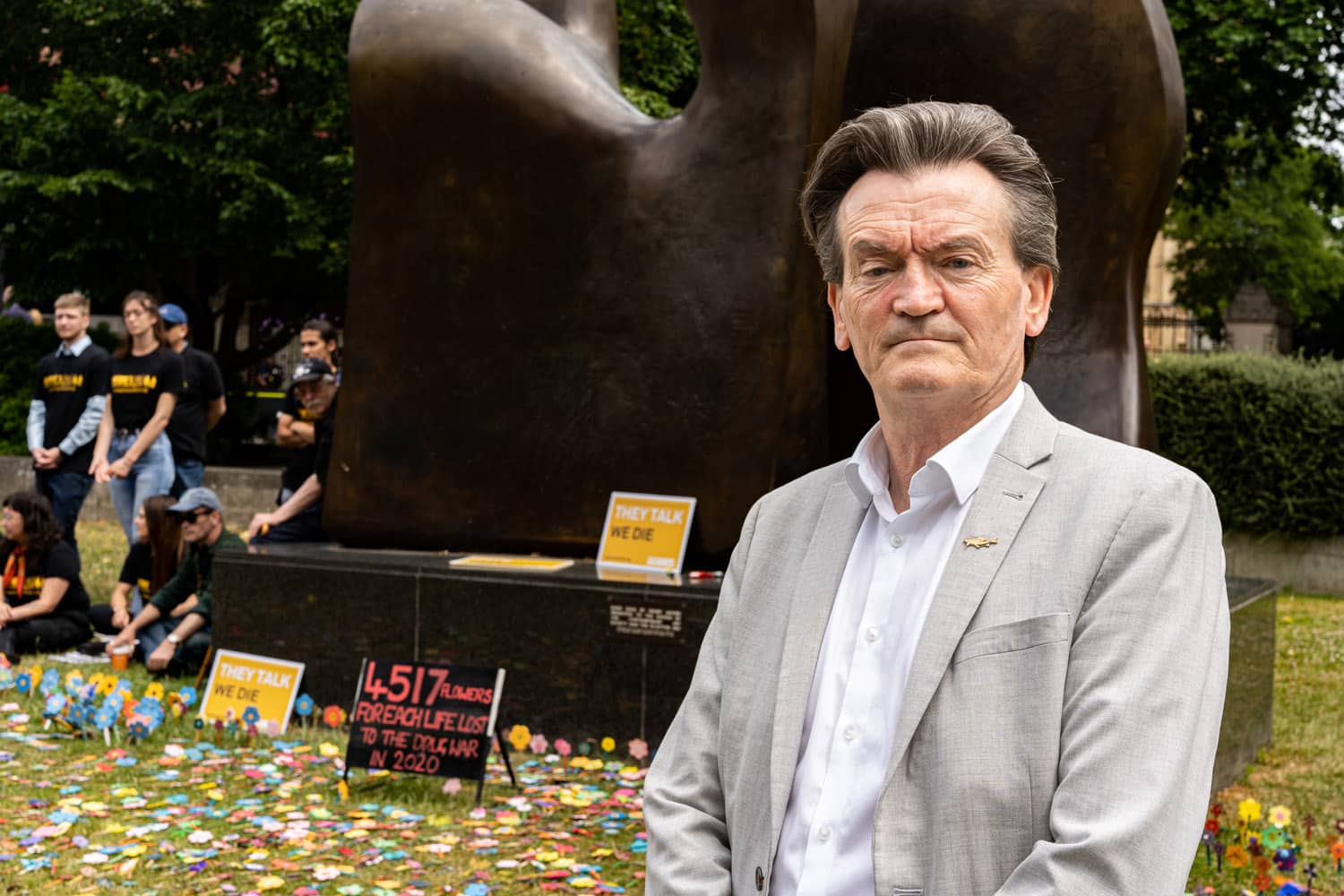
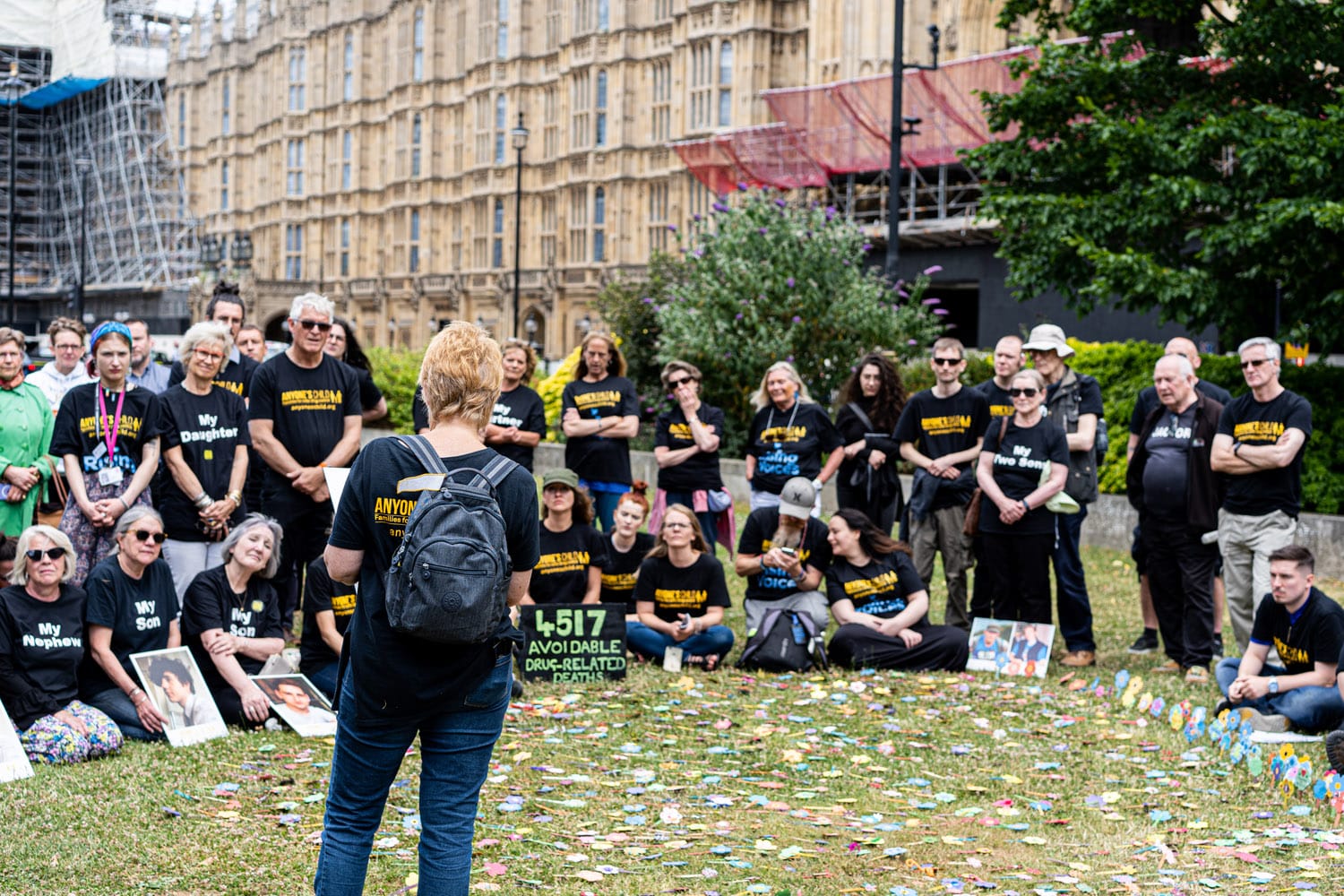
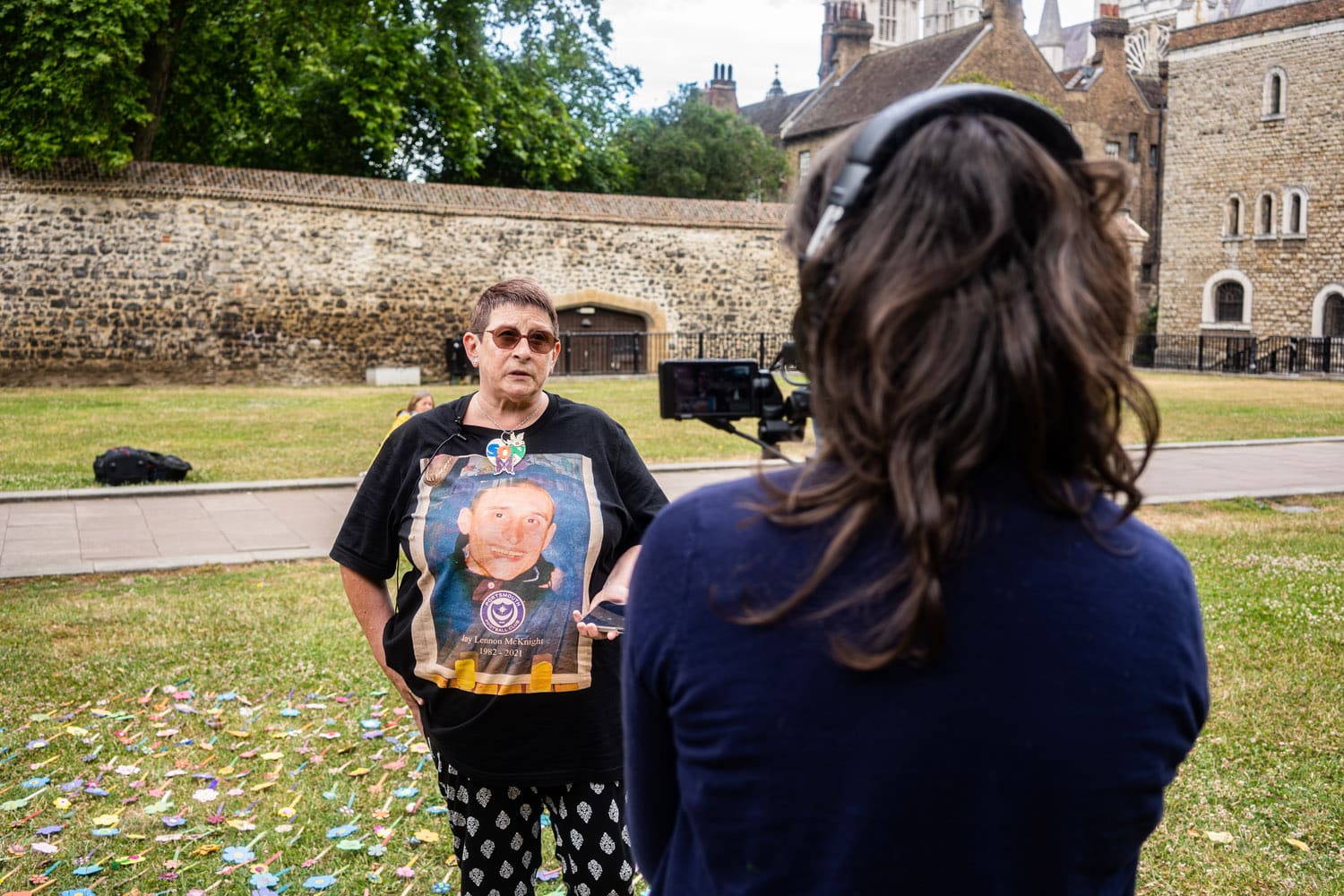

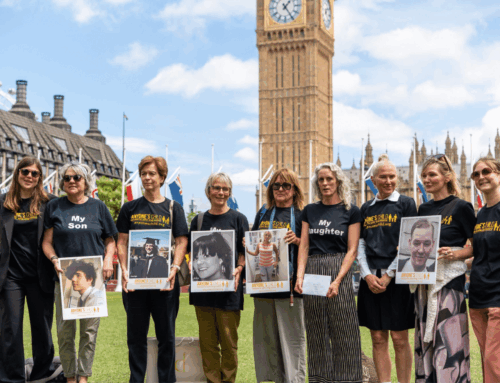
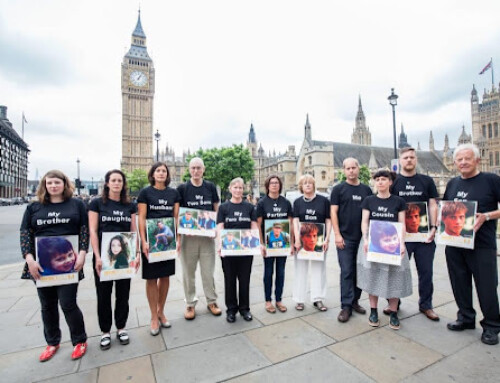
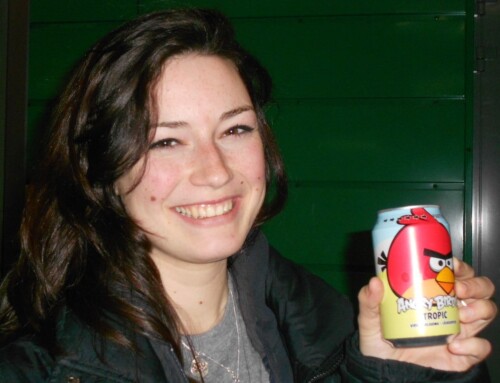
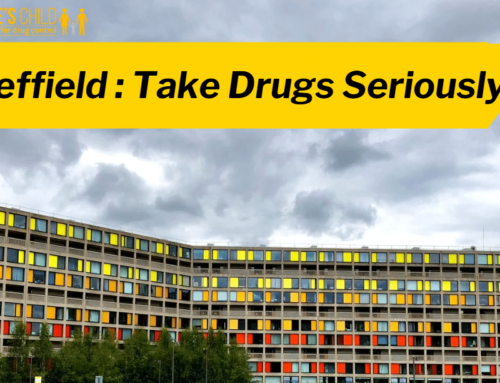
Leave A Comment